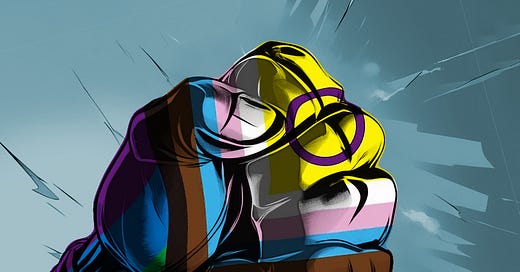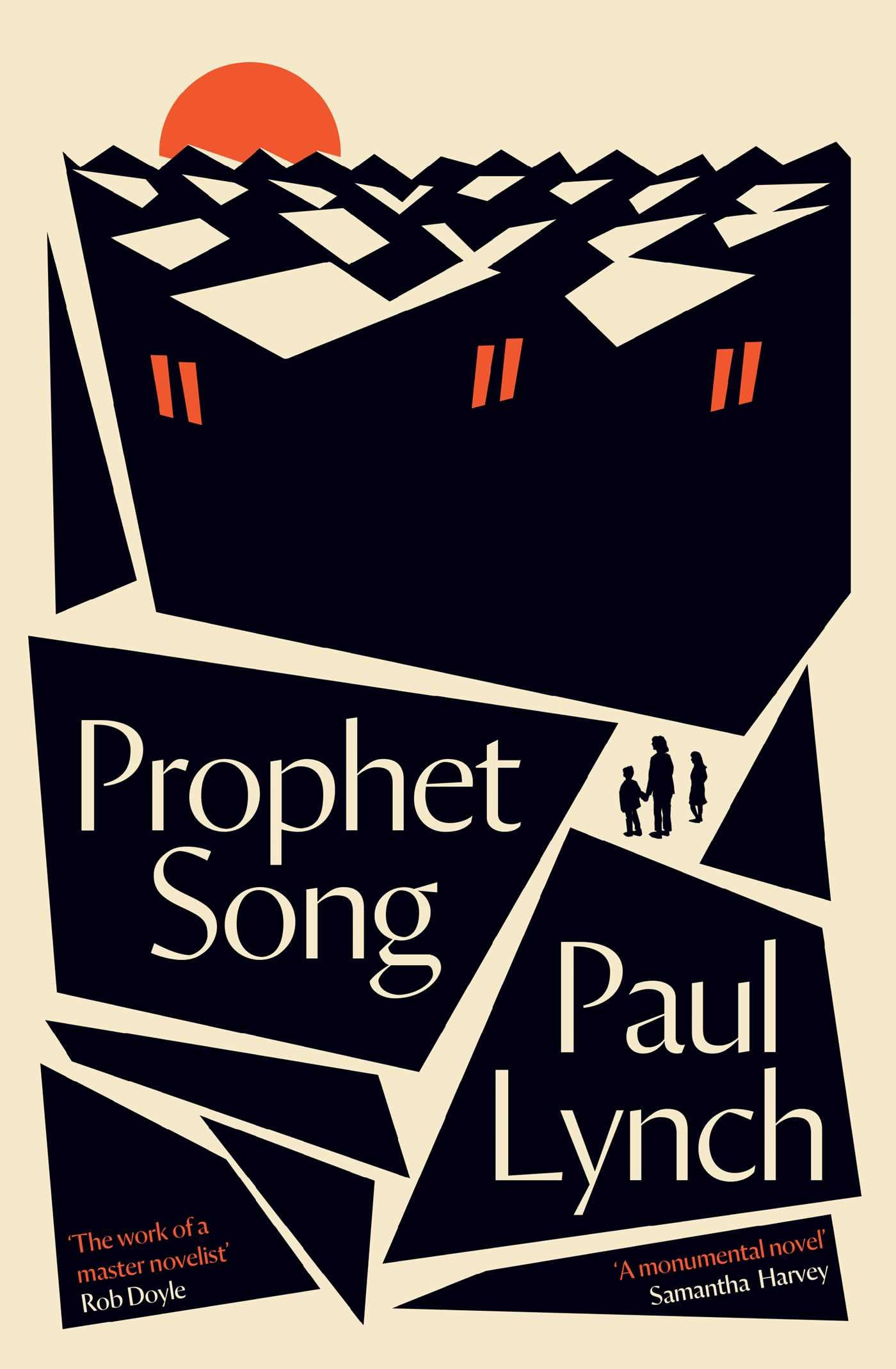"Prophet Song" and psycho-political projection
A reflection on the iron fist in the rainbow glove
Happy New Year.
I
Irish novelist Paul Lynch was recently crowned the winner of the 2023 Booker Prize for his fifth novel Prophet Song. Prior to hearing about his win, I was unfamiliar with Lynch’s oeuvre, and I’ve decided that’s a state in which I shall remain.
When I first heard about the novel, the only thing I knew about it was its central stylistic gimmick (the entire book is told in one unbroken paragraph), which was enough to put me off. (What a chore it must have been to edit, never mind to read.) But after learning about the novel’s premise, I’m even less inclined to check it out.
You see, Prophet Song is set in a near-future dystopia in which a far-right government has come to power in Ireland, and the protagonist’s husband has been abducted by the secret police on account of his trade union organising. This premise would be fine fodder for a thriller or sci-fi novel seeking only to entertain, with no pretensions to having ideas above its station. But no: Lynch takes himself very seriously indeed, and the premise isn’t just a setup on which to tell an exciting, pacy thriller - it’s political commentary, don’t you see? His account of why he wrote the novel is a jaw-dropping exercise in narcissism and self-importance:
“This was not an easy book to write. The rational part of me believed I was dooming my career by writing this novel. Though I had to write the book anyway. We do not have a choice in such matters.”
…During a press conference later on Sunday evening, Lynch said he was “astonished” by the violent disturbances on the streets of Dublin last week. “I recognise that energy is always under the surface, what’s happening in Dublin, we can see [the book] as a warning.”
Given the pace at which Lynch writes, I assume that at least parts of it were written during Covid;Vice ought to have reached out to him for their article about men using lockdown as an opportunity to perfect the art of autofellatio.
But to an extent, I sympathise with his “rational” belief that his career might end up in the toilet as a direct consequence of writing an English-language literary novel based on the idea that “the far-right is bad”. After all, the far-right may not wield any political power in the Anglosphere, or in the film industry, or in the music industry - but you can be damn sure that if you write a novel even suggesting that Viktor Orbán might not be such a top bloke, the publishing industry will blacklist you faster than they would a Holocaust-denying pederast.

There’s something uniquely irritating about someone who presents themselves as a brave iconoclast for having the “courage” to follow the party line. I’m reminded of John Boyega, who had the gall to suggest that his acting career might be over because of his daring decision to speak at a Black Lives Matter protest (allying himself with such radical countercultural organisations as Adidas, Amazon and Apple - and that’s just the As!).





